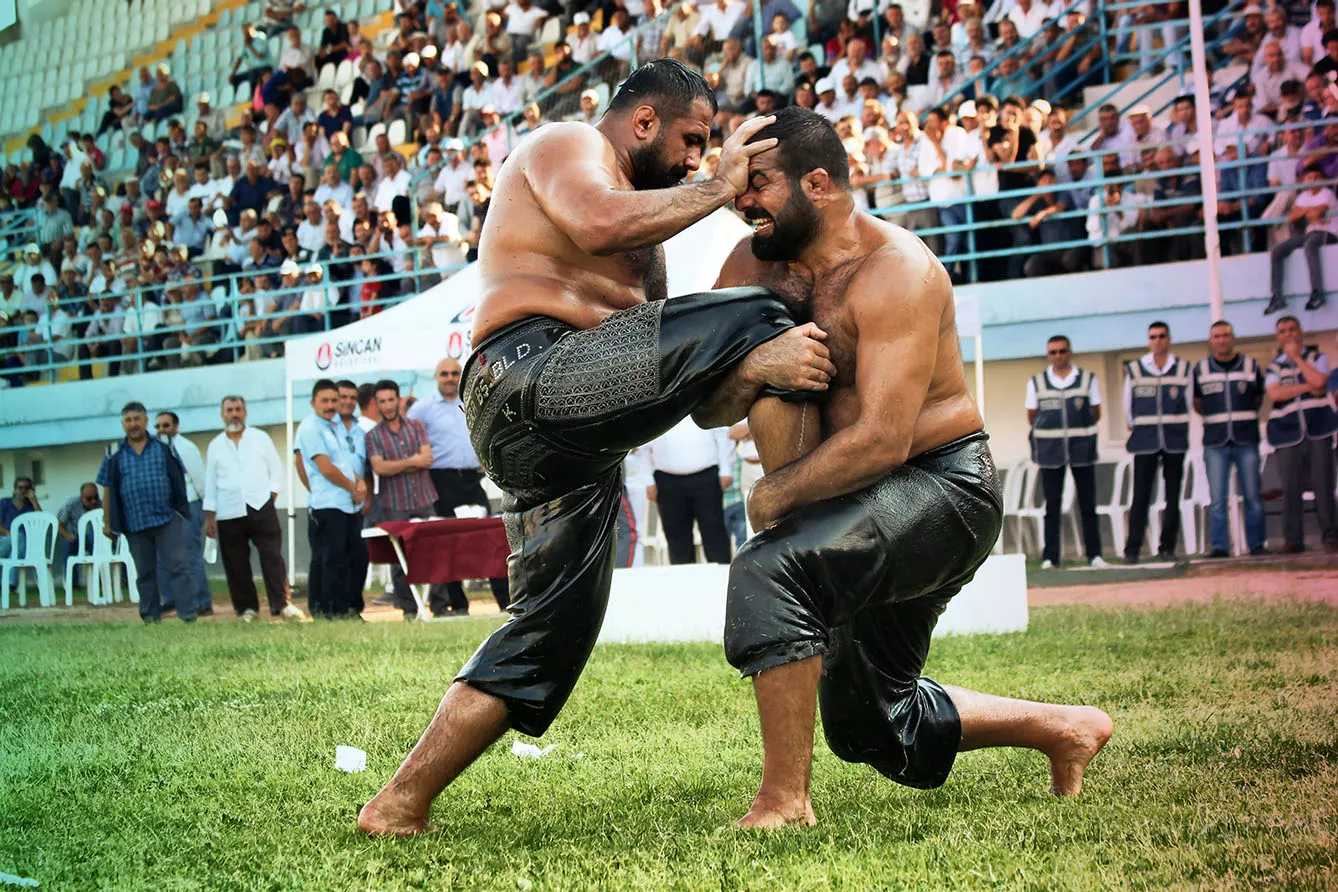In the regions of Bulgaria with a significant local Muslim population, in the northeast and southeast of the country, an ancient tradition lives on. Oil wrestling is believed to have been around for some 4,500 years, performed among others by communities in the Balkans, but it was the Ottoman empire that turned the sport into a cherished tradition. With it came the oil wrestling competitions, which are taking place to this day across Turkey, Bulgaria, and northern Greece.
The aim is simple: subdue the opponent. Not as easy as it sounds, given the free flow of oil before the game begins. In the past, the length of the game wasn’t limited, which meant competitions could go on for days until a winner emerged. Nowadays, depending on the category of the contestants – known as the pehlivani – the game lasts 30 or 40 minutes, with 10- and 15-minute extensions if needed. How does one know who the winner is? That would be the man who manages to get his opponent to lie on the ground on his back first.
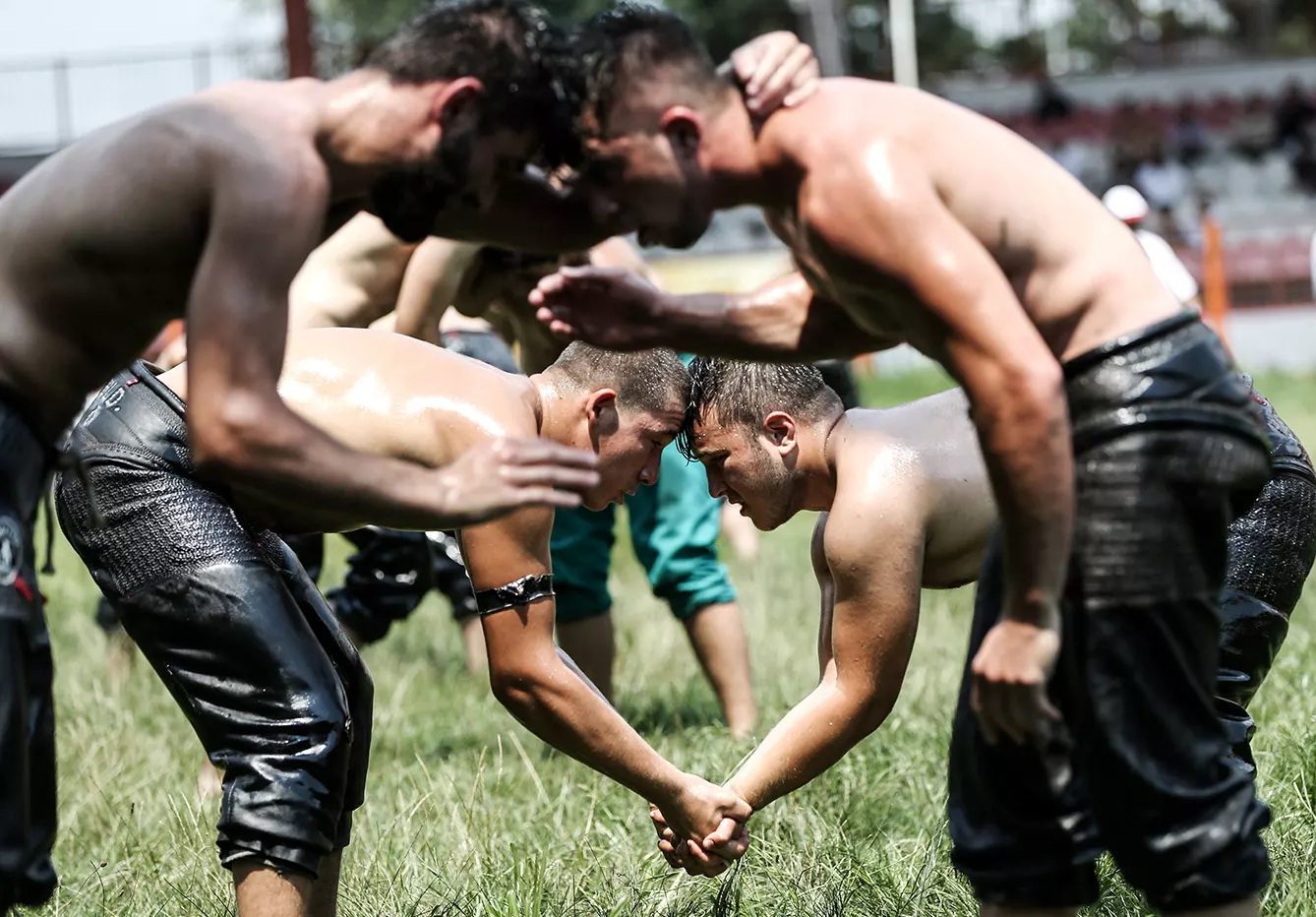
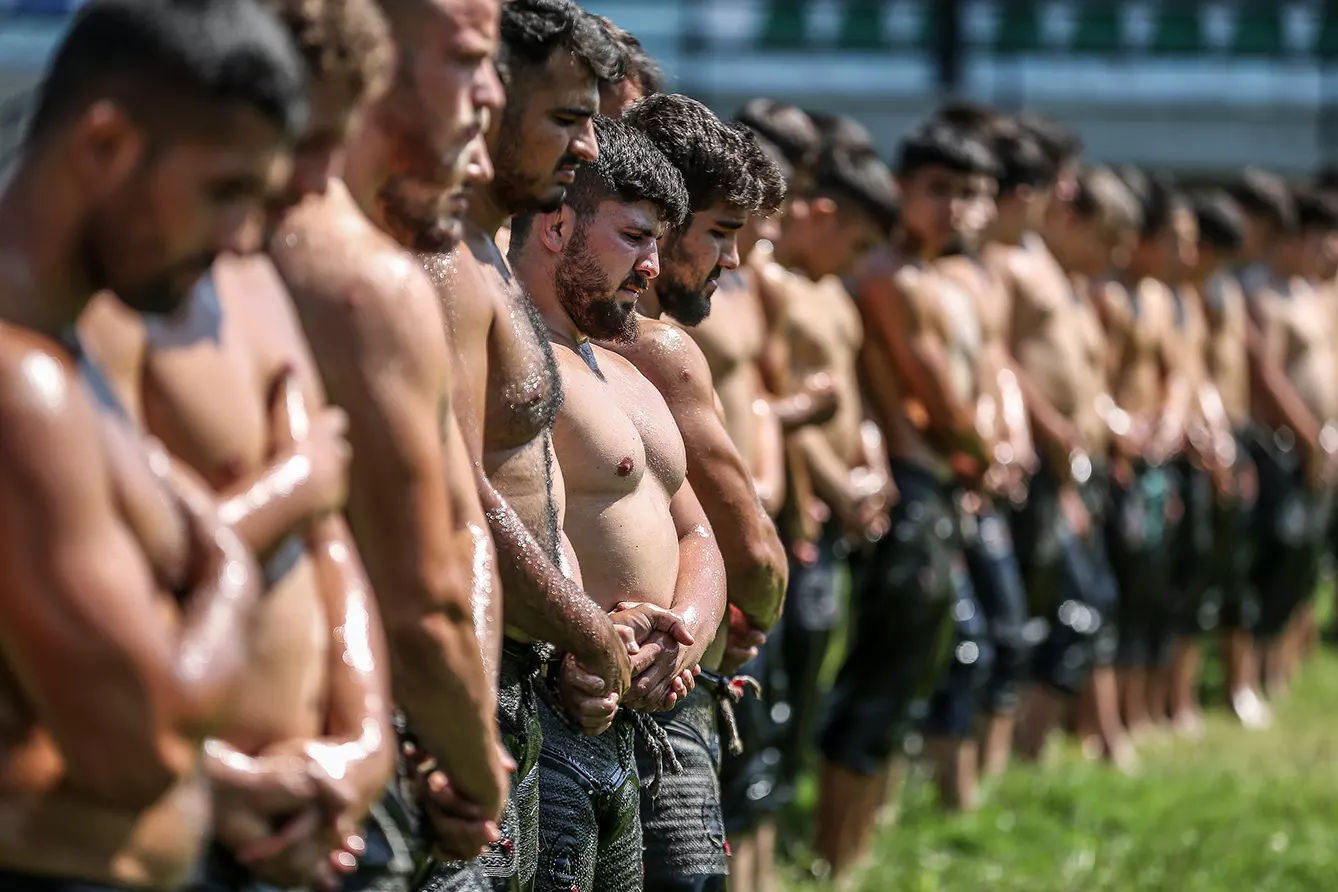
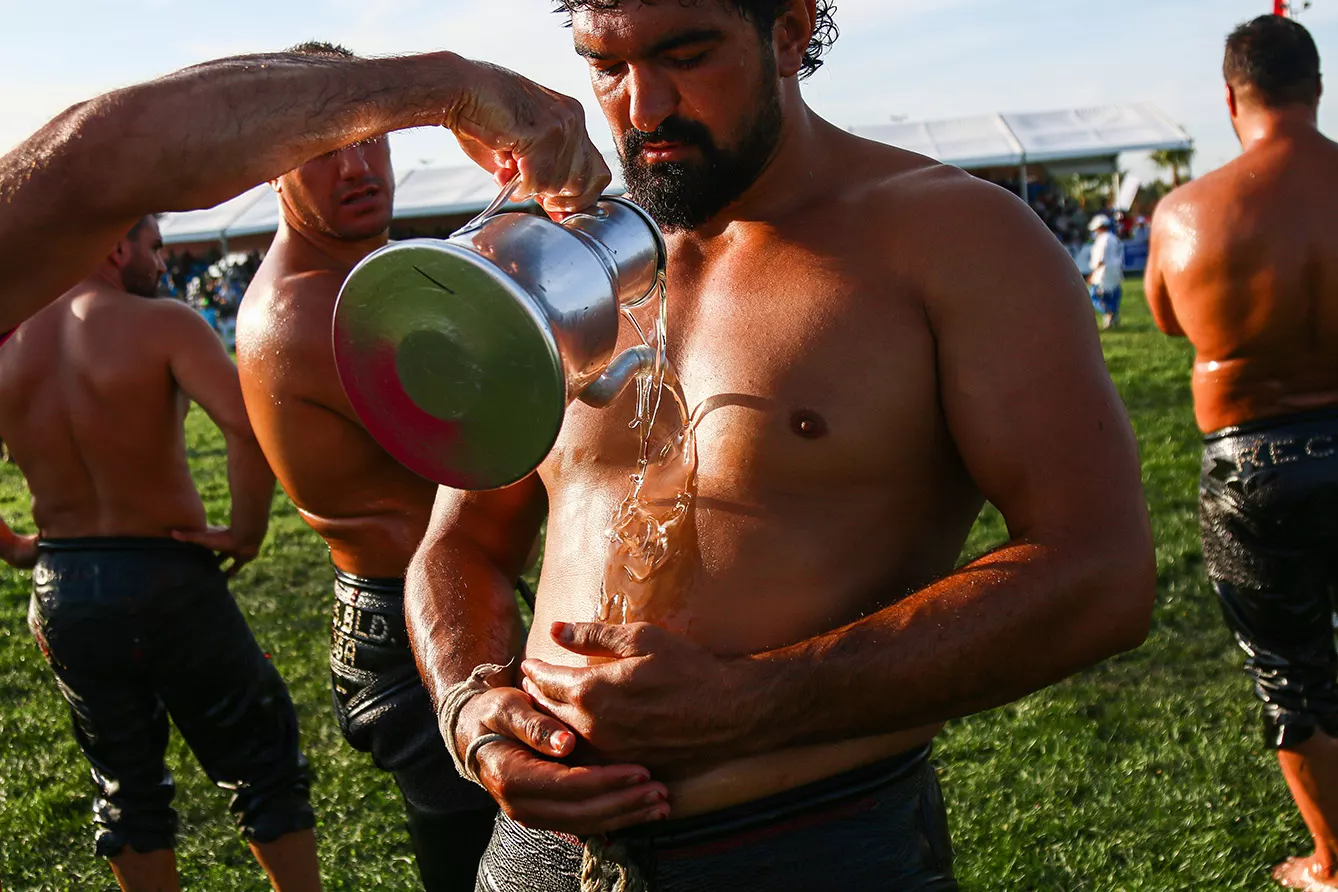
An afternoon of oil wrestling and grilling stands
In the years of socialist rule in Bulgaria, oil wrestling – deemed an expression of minority culture – was not allowed. But following the political changes in the early 1990s, oil wrestling competitions became a staple of fairs and festivals frequented by the local Muslim population, complete with grilling stands for all hungry spectators.
In one village in northeast Bulgaria, wrestlers and visitors attend the events in honor of one of the sport’s biggest stars, Koca Yusuf. Born in 1857 as Yusuf İsmail in the village of Kerala, today Cherna, near Shumen, at his time, Koca Yusuf was ranked among the top three strongmen in the world courtesy of his massive size and brute strength. The motto of the legendary wrestler, honored today on monuments in Bulgaria and Turkey, reads: “I do nothing but wrestle. Just as there is only one sun in the sky, so there is only one Yusuf in wrestling.”
The origin story of Koca Yusuf – aka “The Scary Turk”
Koca Yusuf started his wrestling career by participating in traditional oil wrestling competitions. His career continued in Paris, where he mastered the intricacies of classical wrestling and, in a very short time, became a leading figure in European wrestling. He then left for the US, where he soon earned his self-explanatory nickname: “The Scary Turk.”
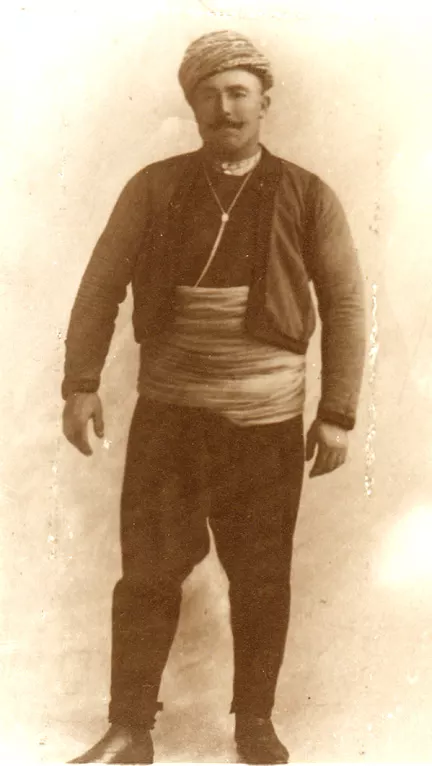
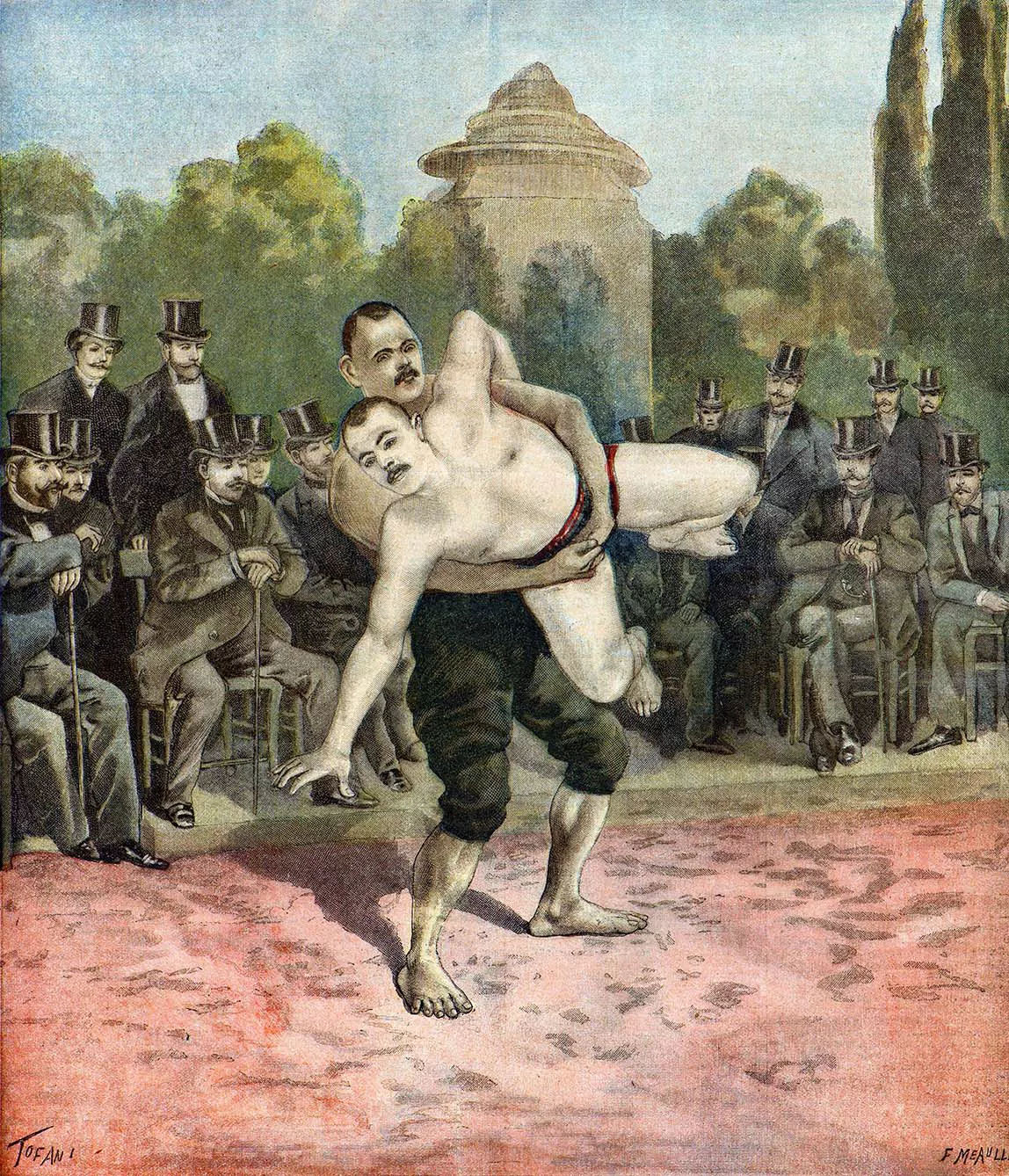
In late May 1898, Yusuf left the United States aboard the SS La Bourgogne. After a successful career overseas, the wrestling star began his return home with plans to open a coffee house or a bazaar in his native village near Shumen in northeast Bulgaria. On July 4, the ill-fated ship sank in the Atlantic. The wrestler was one of the close to 600 victims.
A tribute to the strength of the human spirit
“This hero who conquered the world peaks in sport has no grave, but there is a museum in his native village. We built it as a tribute to the strength of the human spirit,” said at the opening ceremony Nuridin Basri, the mayor of the Hitrino Municipality, part of which is Yusuf’s village, Cherna. Well over a century after the wrestling star left his village, the museum’s opening ceremony in 2015 was attended by the then prime ministers of both Bulgaria and Turkey.
An exhibition of photographs, documents, and full-length model figures tell the story of the legendary fighter’s journey. To top it all off, an 8-ton marble sculpture of Yusuf, made by local artist Behcet Danaji, stands in the village park. It depicts an imposing mustached man – Koca Yusuf – with his arms folded against his chest. “Even during the COVID-19 pandemic, the museum was visited, mainly by guests from Romania, Turkey, and Greece,” Ismail Ebazer, mayor of the village of Cherna, tells 3Seas Europe.
In his native village and beyond, across the various regions of Bulgaria, oil wrestling tournaments are held annually in honor of Koca Yusuf. The games must go on.


